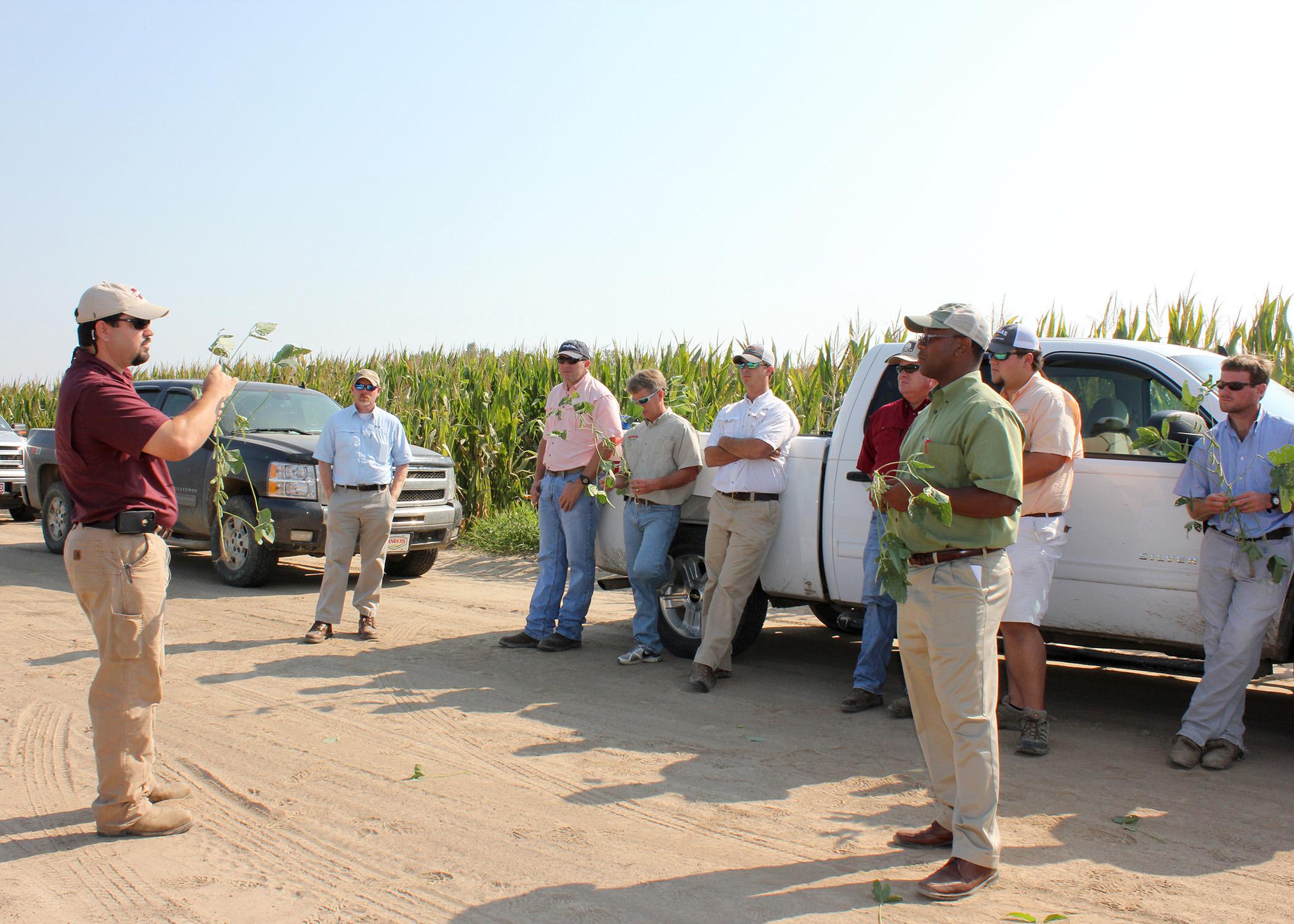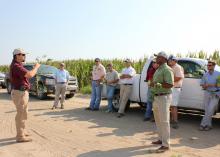Information Possibly Outdated
The information presented on this page was originally released on September 6, 2013. It may not be outdated, but please search our site for more current information. If you plan to quote or reference this information in a publication, please check with the Extension specialist or author before proceeding.
MSU in-field training helps schedule soybean irrigation
STONEVILLE -- A group of soybean professionals met in Stoneville as harvest approached to learn how to be more efficient with irrigation at the end of the growing season.
Tom Eubank, a Mississippi Agricultural and Forestry Experiment Station soybean agronomist at the Delta Research and Extension Center, said soybean farmers need three pieces of information to know when to terminate irrigation.
“We’re trying to put a little bit more science behind irrigation termination decisions that farmers make,” Eubank said. “Soybean farmers need to first be able to identify the soybean growth stage in the field, to understand at what growth stage soybeans stop taking up water and then to be able to determine if there is enough moisture present in the soil to last until the crop reaches that point.”
Field day participants examined soybean plants to determine their growth stage and used a portable soil moisture meter to determine the amount of water in the soil profile available to plants. In addition to Eubanks, MSU scientists Trent Irby, Bobby Golden and Jason Krutz provided the expertise and hands-on training.
MSU economists have calculated that it costs $10 per acre to send 3 to 3.5 inches of irrigation water across a soybean field.
Irby, soybean specialist with the Mississippi State University Extension Service, said recent high soybean prices make this a reasonable cost of production.
“If water conservation and associated costs aren’t issues, we would typically give it another shot of water, just to make sure the crop had all it needed,” Irby said. “But with water conservation an issue, we can’t do that anymore.”
The Mississippi Delta is predominately irrigated from the Mississippi Alluvial Aquifer, which historically has been a plentiful, readily available water source for the entire region. This aquifer has not been replenishing fully in recent years, and its water levels have been dropping.
The training session Aug. 30 was part of concerted efforts by the MSU Extension Service and MAFES to reduce the state’s demands on the Mississippi Alluvial Aquifer and to introduce conservation practices into Mississippi irrigation schedules. MSU is one of many organizations trying to limit the demands placed on the state’s water supplies.
“We have a declining aquifer, and there is concern about needing to conserve more of that resource,” Eubank said. “One way to do that is to possibly eliminate a late-season irrigation event. Historically, just to be on the safe side, farmers have pushed another irrigation across their fields, whether they needed it or not.”
He said careful consideration of irrigation decisions saves producers money and may limit future federal regulations.
“If Mississippi producers don’t do something now to curb the use of our water resources, the government is going to step in and say that’s enough,” Eubank said.
The training was offered to Extension agents, crop consultants and growers as part of MSU’s ongoing efforts to extend research-based information to Mississippians.






